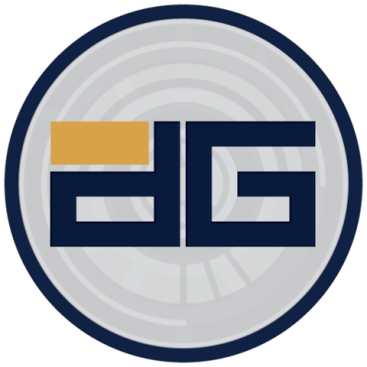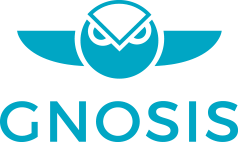Ethereum Classic shadowing and developing on the main chain
Ethereum Classic shadowing and developing on the main chain
Many projects have pledged allegiance to ETH (over ETC), but what does that allegiance translate to? After all, we can take any application on ETH and deploy it on ETC (assuming we can find the compiled code and an accurate ABI). If the price of ETC is lower, so too will be the cost of running apps and users will pay less in gas fees. And since we can just copy over code and give users a better experience on ETC, what's the point of developing on ETH? What's the point of innovating when a shadow app can pop up on the other chain and give a better user experience?
It is clear that the real utility of one chain over the other will come from users of its applications, so how will the more expensive chain (presumably ETH) justify being more expensive?
Obvious utility (Digix)
In a case like Digix, this answer is obvious. Only one chain can have DGX tokens that are backed by physical gold. Forking the application does nothing for its utility because being backed by gold is its utility. Furthermore, DGD tokens on the main chain will be worth something (because of the transaction fees they collect). The other chain's DGD will be completely worthless. Hopefully this is obvious to everyone.
Arguably, Digix is not a decentralized application because its value is still governed by a central authority (Digix Core and their vault in Singapore). Perhaps the "decentralized" part refers to the content distribution system, but it all seems like semantics to me. This may seem like a jab at Digix (because "centralization" is often a dirty word in the crypto space), but it really isn't. More on this later.
Less obvious utility (Gnosis)
In something like Gnosis, this is less clear-cut because the utility is on-chain. Thus, the "shadow" version of Gnosis would actually be better for the end user. However, there is still some intervention with the outside world that should be considered.
Ethereum is a deterministic system, and by that I mean that it cannot, by design, make requests to the outside world. This is both to prevent unintended consequences of a wildly untrusted internet (analagous to the evil nature of eval) and to ensure that the state of the system is preserved and can always be reconstructed later in the blockchain.
With Gnosis, let's imagine a prediction market for a Sunday Night Football game featuring the Baltimore Ravens and the Pittsburgh Steelers with a 2.5 point spread (I won't say in which direction).
Once the game is concluded, everyone watching knows the score and knows the outcome of the market. However, the market itself cannot reach out into the internet and fetch the result. It has to be fed this information from a [hopefully] trusted, predetermined source.
You can imagine a trusted oracle like ESPN might be contracted by the Gnosis team to sign a message into the blockchain at the end of the game, securing the answer to who won and by how much. This is a key component to the platform and is why it can never be truly decentralized either.
Now, what about ETC? If the "real" Gnosis team has relationships with trusted oracles (e.g. ESPN), can't some "shadow" Gnosis team make a deal with competing oracles (e.g. Yahoo) to provide the same service? Sure, I would trust Yahoo, and sure, some person with a vested interest in the shadow Gnosis product could theoretically do that, but it won't be easy. Furthermore, the issue arises that this must happen for every application in order for the ecosystem to actually mirror the one on the main chain.
Safeguards against ETC shadowing
In my opinion, there are two key safeguards against ETC becoming a cheaper mirror of the Ethereum platform.
1. Centralized/physical services are off limits
Back to the example of Digix, there is nothing to be done. You can't fork it because that provides no utility on the new chain. This really lends credence to a belief I hold, which is that Ethereum is sometimes more useful if it is not truly decentralized. There, I said it. More on this soon.
2. Administrative work and network effects must be mirrored too
I conveniently left out the notion of dispute mediation on the Gnosis platform. This occurs when someone in a market raises an issue with the outcome provided by the oracle. In such a case, the dispute gets kicked to a "decentralized oracle", whose details are fuzzy to me, but the point is that this is essentially administrative work. This work cannot be forked.
And before we even get to that point, Gnosis has to run its crowdsale to fund development and during that period, people have to buy in and developers have to sit nervously by their computers making sure that money is coming in and everyone is getting their tokens. And after that they have to set up governance which (in my understanding) will be largely centralized to start with (taking a page from the Maker book) and the core team has to make sure everyone is happy with how things are progressing and the investors have to invest their time and effort into making the idea and product better.
So, you may say to yourself: "Let them do all of those things and then I'll fork their product when it's running smoothly". As every developer reading this probably knows, this is a hilarious fallacy, but additionally there is one key aspect I didn't mention: the real Gnosis has been acquiring users this entire time.
Thus, the value proposition to switch over from "real" Gnosis to a forked (probably buggy) "shadow" Gnosis is going to rely entirely on transaction fees dropping from 0.1 cents to 0.01 cents. Good luck with that.
Next steps
I think the Ethereum community is searching for an identity right now, so I'll throw in my two cents.
If we want to be truly mainstream, we need to involve the rest of the world. Ethereum is a deterministic system, sure, but that doesn't mean it should exist inside a bubble. Partnerships are what make the business world go around and we should embrace that. After all, don't we want more exposure to the real world? Don't we want to share our visions of cutting out the middle man, making more efficient markets, and giving true control of assets to individuals who actually own them?
I sure want those things and I think the majority of us do, which is why we support the forked chain. The Ethereum network, immutable or not, is worthless without the people who use it. Just like every other technology, Ethereum is a tool to use in a way that benefits its users the most. Ideologies need not apply.
On the day of the DAO hack, I got very angry and rage posted on reddit about how forking was a mistake. I was really disappointed in Vitalik and co. for proposing that solution so quickly and for DDoSing their own network. I'm over it now. The decision has been made and we need to look forward. There may be a place for ETC to exist, but in my opinion that domain is far away from Ethereum itself.
We are on a new path now. Let's all start moving together.





Thoughtful and well done. I would say that even porting the code over isn't straight forward once its been deployed and hooked into different real world aspects or processes outside the ETH blockchain. But very sober and constructive article. Thank you.
Simply Great Information and Presentation
Remember when they promoted ETH for it's immutable code? The hacker didn't destroy that, the devs did.
Code was never immutable in the way that you use. Not even Bitcoin. Blockchain tech is based on consensus mechanisms that allow precisely these kind of forks. ETC and ETH are equally mutable at a protocol level. That is literally how blockchain tech works. Somebody with crypto in their name should understand that.
Congratulations @cryptocylon! You received a personal award!
You can view your badges on your Steem Board and compare to others on the Steem Ranking
Vote for @Steemitboard as a witness to get one more award and increased upvotes!
Upvoted
Hi! This post has a Flesch-Kincaid grade level of 8.2 and reading ease of 68%. This puts the writing level on par with Leo Tolstoy and David Foster Wallace.